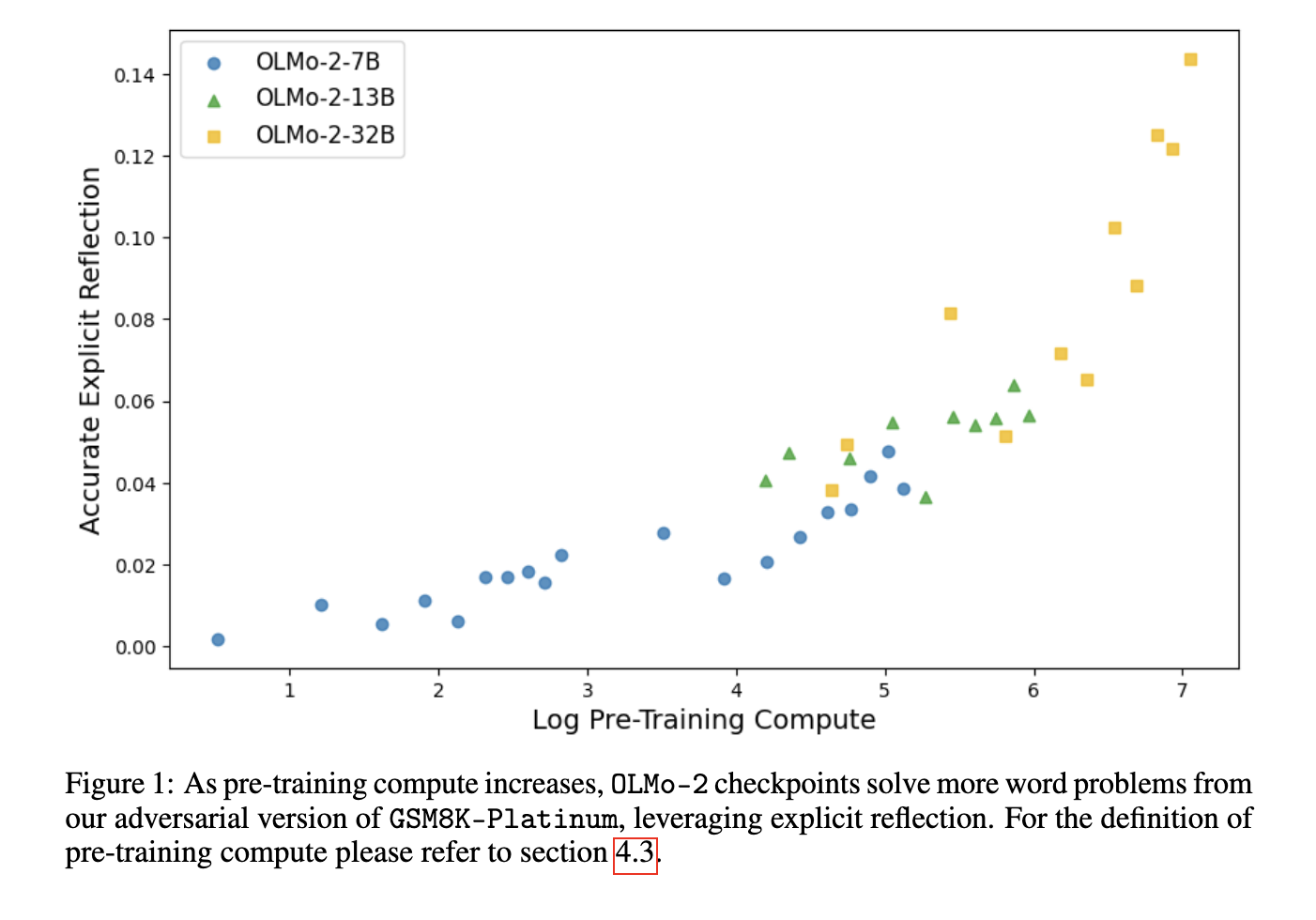
Enhancing AI Reflective Reasoning in Business
Understanding Reflective Reasoning in AI
Large Language Models (LLMs) are distinguished by their emerging ability to reflect on their responses, identifying inconsistencies and attempting to correct them. This capability, akin to machine-based metacognition, signifies a shift from basic processing to advanced evaluative reasoning. Such reflective reasoning is crucial for complex tasks, including coding and mathematical problem-solving.
Challenges in Measuring Reflection
A significant challenge in AI research is pinpointing when reflective reasoning emerges during the training of language models. Many researchers assume that this ability develops only after reinforcement learning is applied. However, it may actually surface earlier in the pre-training phase. Traditional evaluation methods often overlook this aspect, as they do not adequately assess how models adapt their outputs when faced with incorrect reasoning.
Current Evaluation Tools
To address these challenges, various tools have been developed to evaluate reasoning in AI models. Techniques such as Chain of Thought and Tree of Thought frameworks focus on analyzing outputs or the model’s internal pathways. However, these methods typically assess models after fine-tuning, neglecting the organic development of reflective behavior during pre-training.
Innovative Solutions from Essential AI
Researchers at Essential AI in San Francisco have introduced a novel framework to investigate reflective reasoning during the pre-training stage. They created adversarial datasets that simulate realistic errors across six domains, including coding and logical analysis. These datasets challenge models to identify and correct mistakes, thereby fostering reflective reasoning.
Methodology and Findings
The researchers categorized reflection into two types: explicit and implicit. Explicit reflection occurs when a model acknowledges its mistake, while implicit reflection is inferred when it arrives at the correct answer without overt acknowledgment. Their findings revealed that out of 240 evaluated dataset combinations, 231 exhibited situational reflection, and 154 demonstrated self-reflection. A strong correlation (0.76) was found between pre-training compute intensity and reflective reasoning.
Practical Business Applications
Businesses can leverage these insights to enhance their AI strategies:
- Identify Automation Opportunities: Look for processes that can be automated, particularly in customer interactions where AI can add significant value.
- Monitor Key Performance Indicators (KPIs): Establish KPIs to evaluate the effectiveness of AI investments and ensure they positively impact business outcomes.
- Select Customizable Tools: Choose AI tools that can be tailored to meet specific business objectives.
- Start Small and Scale: Initiate AI projects on a small scale, gather data on their effectiveness, and gradually expand usage based on insights gained.
Conclusion
The research from Essential AI highlights that reflective reasoning is not solely a product of advanced optimization but begins to develop during the foundational training of language models. By understanding and fostering this capability, businesses can significantly enhance their AI systems, leading to improved reasoning and decision-making processes.




























